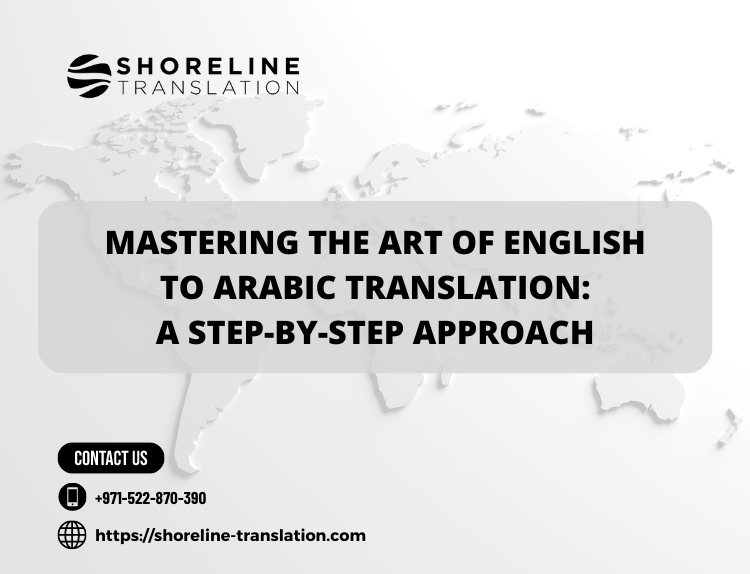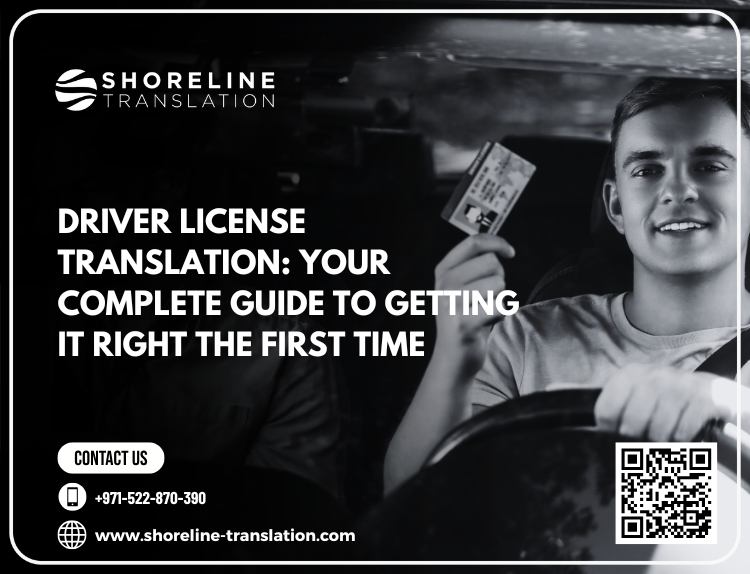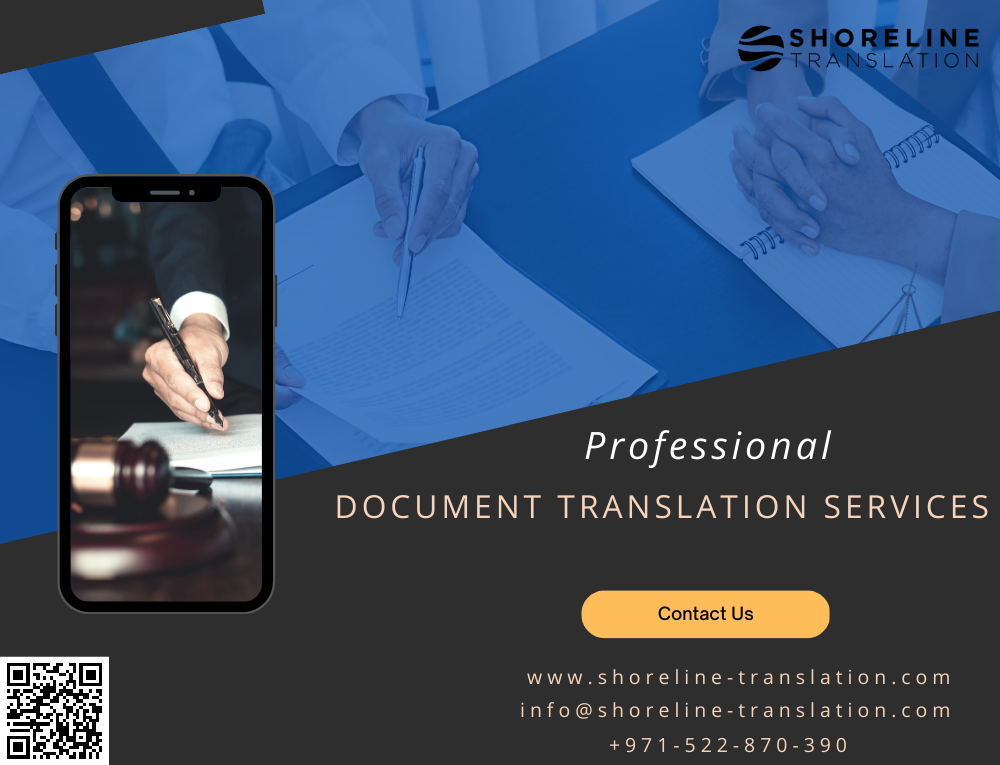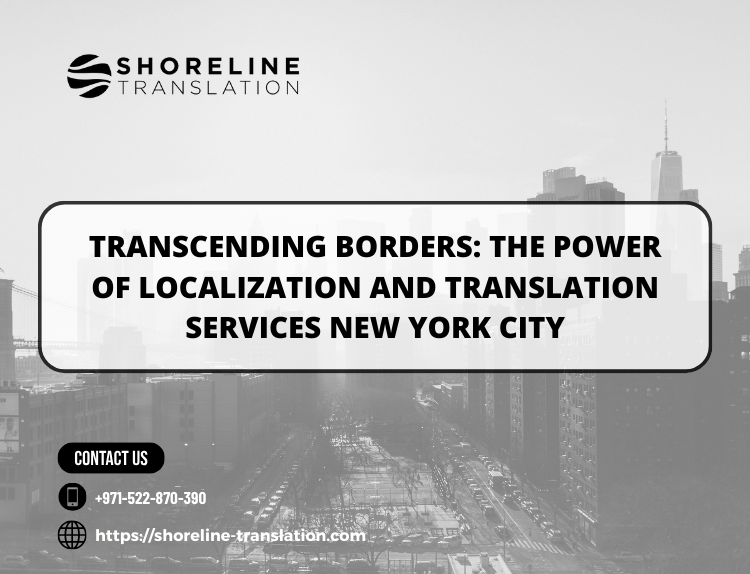Table of Contents
ToggleThe Role of AI in the Future of Legal Translation in Dubai
Dubai is a hub of international business, with companies and individuals from all over the world flocking to this vibrant metropolis. As such, there is a great demand for legal translation services that can bridge language barriers and facilitate smooth communication between parties. With technology advancing at an unprecedented pace, it’s no surprise that artificial intelligence (AI) is poised to play a critical role in the future of legal translations in Dubai. In this blog post, we’ll explore how AI-powered translation tools are transforming the landscape of legal translation services in Dubai – and what this means for businesses looking to operate on a global scale. So buckle up as we journey into the exciting world of AI-assisted legal translations!
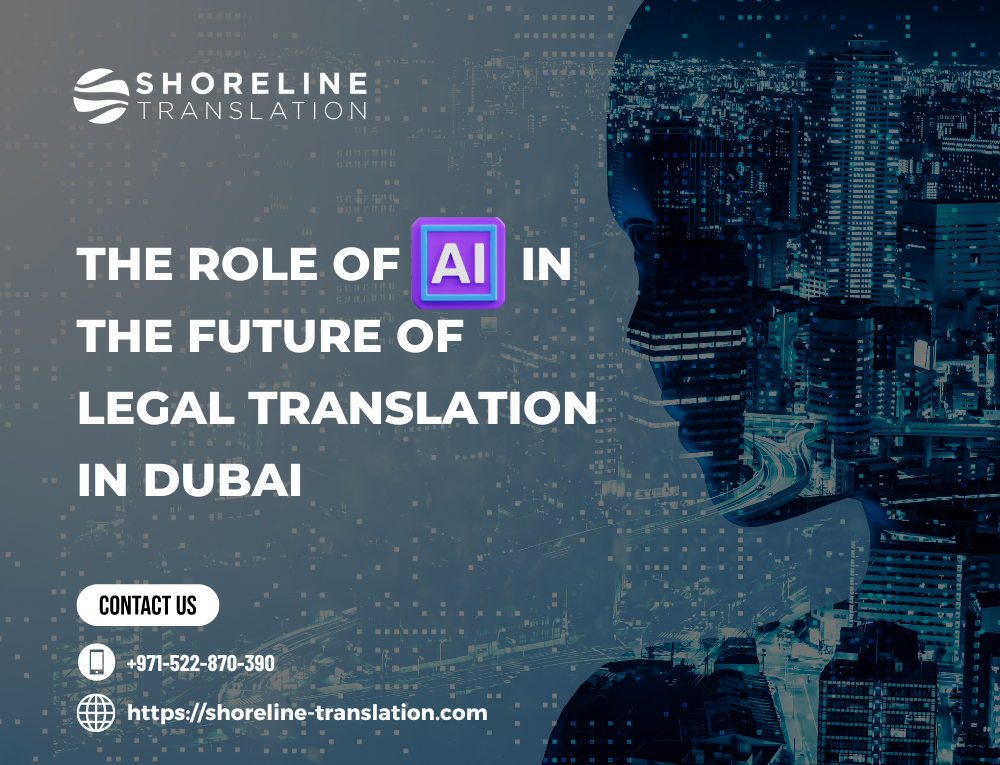
Introduction to Artificial Intelligence and its Role in Legal Translation
Artificial intelligence (AI) is increasingly being used in a variety of industries to automate tasks that have traditionally been performed by human beings. The legal sector is no exception, and AI is beginning to play a role in legal translation.
In Dubai, AI is being used to translate legal documents from Arabic into English. The Dubai Courts have partnered with the British Council to develop an AI-powered system that can translate documents such as court judgments and contracts.
The use of AI in legal translation has a number of advantages. First, it can help to improve the accuracy of translations, as machines are less likely to make mistakes than human translators. Second, it can speed up the translation process, as AI-powered systems can often translate documents much faster than humans.
The use of AI in legal translation is still in its early stages, but it is clear that it has the potential to revolutionize the field. In the future, AI may become even more widely used in legal translation, making it easier and faster for people from different cultures to communicate with one another.
What is the Legal Translation Industry in Dubai?
The legal translation industry in Dubai is expected to grow significantly in the next few years. This is due to the increasing demand for legal services in the UAE and the region as a whole. The number of legal cases being filed in the UAE courts has increased steadily over the past few years, and this trend is expected to continue. As a result, there is a growing need for legal professionals who can provide accurate and reliable translations of legal documents.
There are many different types of Legal Translation Services offered in Dubai. These include contract translation, court document translation, patent translation, and more. Many companies offer these services, but it is important to choose a reputable and experienced company that offers high-quality services. In order to find the best Legal Translation Services in Dubai, it is recommended that you get quotes from several different companies and compare their rates and services.
The role of AI in Legal Translation Services is becoming increasingly important as the industry grows. AI technology can help improve the accuracy and efficiency of translations, and it is also being used to develop new methods of translating legal documents. The use of AI in Legal Translation Services is expected to increase in the future as the technology continues to evolve.
Current Challenges of Legal Translation in Dubai
The legal translation industry in Dubai is currently facing a number of challenges. The first challenge is the increasing demand for legal translation services. This is due to the fact that Dubai is a global city and a hub for business and trade. As a result, there is a growing need for legal translation services in order to facilitate business transactions and to ensure compliance with local laws.
The second challenge facing the legal translation industry in Dubai is the shortage of qualified translators. This is because the field of legal translation requires specialized knowledge and skills. There are not enough qualified translators in Dubai to meet the current demand.
The third challenge facing the legal translation industry in Dubai is the high cost of translating documents. This is because legal documents are often very long and complex, making them expensive to translate. In addition, many legal terms do not have an equivalent in other languages, making translation even more difficult and costly.
AI can help address these challenges by providing accurate and affordable translations of legal documents. AI-powered translation tools can provide high-quality translations at a fraction of the cost of traditional human translations. In addition, AI can help improve the efficiency of the translation process by automating repetitive tasks such as document formatting and proofreading.
Finally, AI-powered translation tools can help bridge the gap in the shortage of qualified translators. By providing accurate translations faster than humans, these tools can help ease the burden on human translators and provide legal documents with more accuracy and speed.
AI Tools and Technologies for Legal Translators
As the legal industry in Dubai continues to grow and evolve, so too does the need for accurate and reliable legal translation services. With the help of artificial intelligence (AI), legal translators can now take advantage of powerful tools and technologies that can help them to deliver faster, more accurate translations.
Some of the AI tools and technologies that are currently available to legal translators include machine translation (MT) engines, computer-assisted translation (CAT) tools, and neural machine translation (NMT) systems. By using these tools,legal translators can translate documents more quickly and accurately than ever before.
In addition to traditional AI tools, there are also a number of new startups that are developing innovative solutions for the legal translation industry. One such company is LegalXML, which is working on a platform that will allow users to automatically generate contracts in multiple languages. This could potentially revolutionize the way that legal documents are translated, making the process far faster and easier.
It is clear that AI is playing an increasingly important role in the future of legal translation in Dubai. With the help of these powerful tools and technologies,legal translators can continue to provide high-quality translations that meet the needs of their clients.
Benefits of Using AI for Legal Translations
As the world becomes increasingly digital, the demand for accurate and reliable translations of legal documents is on the rise. The use of AI-powered translation tools can help to meet this demand, providing a number of benefits for both translators and their clients.
Some of the benefits of using AI for legal translations include:
Increased Accuracy: AI-powered translation tools can help to improve the accuracy of translations, as they are able to identify and correct errors more effectively than humans. This is particularly beneficial for complex legal documents which often contain a lot of technical jargon.
Improved Efficiency: Using AI can also help to speed up the translation process, as it can automate repetitive tasks such as identifying key terms and translating them consistently throughout a document. This can free up time for translators to focus on more challenging tasks, resulting in a faster turnaround time for clients.
Lower Costs: In addition to being faster, using AI-based solutions can also help to reduce the overall cost of translations. This is due to the fact that these solutions often require less human intervention, which reduces the need for paid hours from professional translators.
Improved Quality: Lastly, AI-powered solutions can help to ensure higher quality translations by helping to identify and correct mistakes that might otherwise be overlooked. This can help to ensure that the final product is of the highest quality and accurately reflects the original legal document.
Future Trends and Opportunities with AI in Legal Translations
The legal industry is constantly evolving and with the rise of new technologies, the way in which legal services are delivered is also changing. One of the most significant changes that is set to take place in the legal sector is the increased use of artificial intelligence (AI) in legal translation services.
There are many benefits that can be gained from using AI in legal translation services, such as increased accuracy, speed and efficiency. In addition, using AI can help to reduce the costs associated with traditional translation methods.
As the use of AI in legal translation services continues to grow, there are certain trends and opportunities that are worth keeping an eye on. Here are some future trends and opportunities with AI in legal translations:
- Increased Accuracy: One of the main benefits of using AI for legal translations is increased accuracy. This is because AI-powered software can provide more accurate translations than human translators. This is due to the fact that AI software can process large amounts of data much faster than humans and can also identify patterns and correlations that humans would not be able to see.
- Faster Translation Times: Another benefit of using AI for legal translations is faster translation times. This is because AI software can process large amounts of data much faster than human translators. In addition, when multiple language pairs are involved, human translators often have to translate back and forth between languages, which takes up a lot of time. However, with AI software, all this can be done automatically and in a fraction of the time.
- Improved Quality: AI-powered software can also help to improve the overall quality of translations, as it can identify patterns and correlations that humans would not be able to see. This can lead to more accurate translations which in turn will lead to improved customer satisfaction rates.
- Reduced Costs: The use of AI for legal translations can also help to reduce costs associated with traditional translation methods. This is because AI powered software can process large amounts of data much faster than human translators, meaning fewer resources need to be used on the translation process.
- Increased Productivity: As well as reducing costs, using AI for legal translations can also lead to increased productivity amongst translators due to the increased accuracy and speed provided by the technology. This will result in a higher output rate per translator and potentially more satisfied customers due to better results being provided faster.
Overall, the use of AI in legal translations is set to provide many benefits both for companies providing legal services as well as their customers who receive these services. There are many future trends and opportunities that are worth keeping an eye on, such as increased accuracy, faster translation times, improved quality, reduced costs and increased productivity
Conclusion
In conclusion, the role of AI in legal translation services is likely to become increasingly important as the demand for high-quality translations grows. Despite its current limitations, AI technology can be used to speed up and improve a range of processes in Dubai’s legal sector, such as document analysis, formatting and even translation. As more industries adopt this technology, we expect to see it become an indispensable tool for ensuring accuracy and efficiency within the legal sector.
AI technology can also open up new opportunities for legal translators, such as providing more accurate and personalized translations. In addition, AI-based tools can help legal professionals quickly identify potential errors in documents. As the use of AI technology continues to evolve, so too will the scope and capabilities of legal translation services in Dubai. With the right implementation, AI could revolutionize the way legal translations are conducted in Dubai, improving accuracy and efficiency while reducing time and cost.


